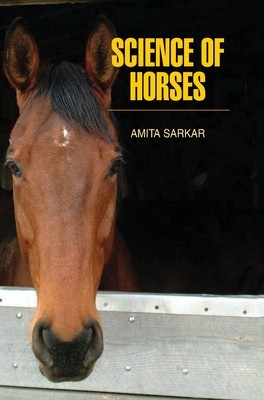
- We will send in 10–14 business days.
- Author: Amita Sarkar
- Publisher: DISCOVERY PUBLISHING HOUSE PVT LTD
- ISBN-10: 9350563002
- ISBN-13: 9789350563007
- Format: 17 x 24.4 x 1.9 cm, hardcover
- Language: English
- SAVE -10% with code: EXTRA
Reviews
Description
The horse is one of two extant subspecies of Equus ferus, or the wild horse. It is a single-hooved mammal belonging to the taxonomic family Equidae. The horse has evolved over the past 45 to 55 million years from a small multi-toed creature into the large, single-toed animal of today. Humans began to domesticate horses around 4000 BC, and their domestication is believed to have been widespread by 3000 BC. Horses in the subspecies caballus are domesticated, although some domesticated populations live in the wild as feral horses.
EXTRA 10 % discount with code: EXTRA
The promotion ends in 20d.22:12:46
The discount code is valid when purchasing from 10 €. Discounts do not stack.
- Author: Amita Sarkar
- Publisher: DISCOVERY PUBLISHING HOUSE PVT LTD
- ISBN-10: 9350563002
- ISBN-13: 9789350563007
- Format: 17 x 24.4 x 1.9 cm, hardcover
- Language: English English
The horse is one of two extant subspecies of Equus ferus, or the wild horse. It is a single-hooved mammal belonging to the taxonomic family Equidae. The horse has evolved over the past 45 to 55 million years from a small multi-toed creature into the large, single-toed animal of today. Humans began to domesticate horses around 4000 BC, and their domestication is believed to have been widespread by 3000 BC. Horses in the subspecies caballus are domesticated, although some domesticated populations live in the wild as feral horses.


Reviews